Estimated reading time 16 minutes, 2 seconds.
Now that Airbus has agreed to secure a 50.01 per cent stake in the C Series Aircraft Limited Partnership (CSALP), the future of Bombardier’s innovative CS100 and CS300 passenger aircraft seems secure.
(Under the proposed deal, which is expected to close by mid-2018, Bombardier and Investissement Québec [IQ] will own approximately 31 per cent and 19 per cent of the CSALP, respectively.)
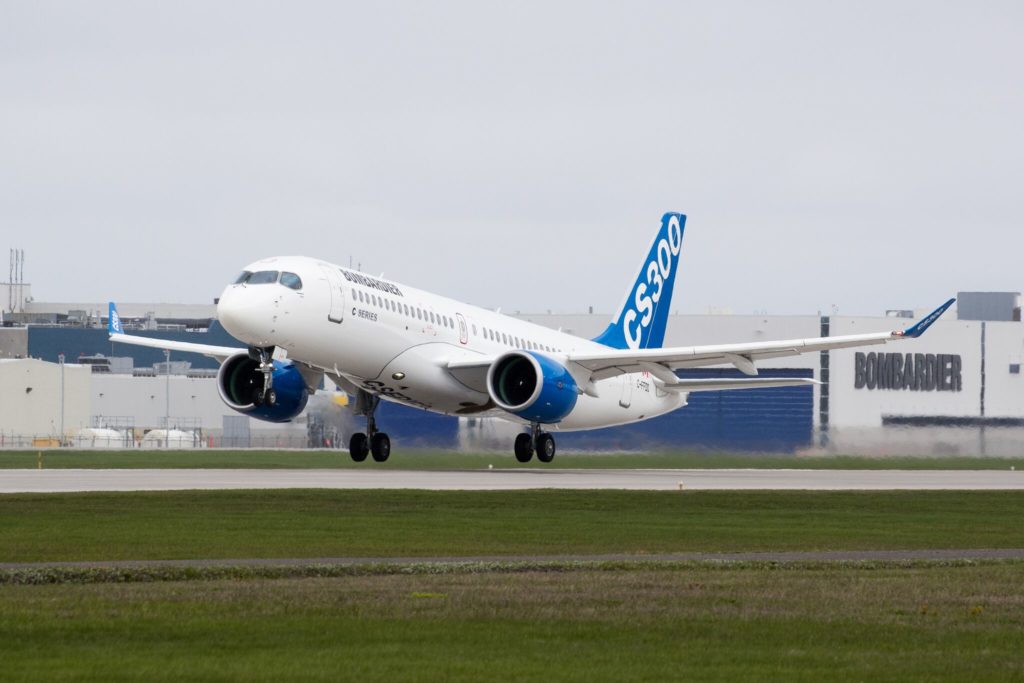
Certainly, the market demand is there. Bombardier estimates potential global sales for 100 to 150 seat narrow-body airframes “to represent more than 6,000 new aircraft over the next 20 years,” said Nathalie Siphengphet, senior advisor for media relations and public affairs at Bombardier Commercial Aircraft.
The addition of Airbus to the CSALP “will ensure sustainability and growth of the C Series program,” she said. “It will also consolidate the entire aerospace cluster, resulting in a positive impact on this strategic sector of the economy for Quebec and Canada.”
The potential downside? The C Series program’s white knight could end up as its sole owner, cutting Bombardier out of the narrow-body aircraft niche it has pioneered at great expense to both the company and the Canadian taxpayer.
Understanding the Deal
Usually, when one company obtains controlling interest of another company’s business venture, money changes hands.
But not in this case: Airbus is not putting up any cash for taking control of the CSALP.
Instead, “Under the agreement, Airbus will provide procurement, sales and marketing, and customer support expertise to the CSALP–the entity that manufactures and sells the C Series,” said Siphengphet.
In exchange, Airbus gets a 50.01 per cent share. It gets to choose four of the seven appointments on the CSALP Board of Directors and will also name the chairman.
Despite Airbus scoring a ‘no money down’ deal in taking control of the CSALP, Bombardier has still achieved a serious business coup. It now has access to the global aircraft manufacturer’s vast supply chain, international sales and service force, and customer base. To explain what Bombardier has done in hockey terms, it is as if a top-flight minor league hockey team has negotiated complete front office, coaching, and access to players from the Stanley Cup-winning Pittsburgh Penguins.
At the same time, “The C Series Aircraft Limited Partnership headquarters and primary assembly line [will] remain in Quebec where Bombardier is based,” said Siphengphet. “The program will benefit from Airbus sales force and global reach, and we are confident that it will create value for our employees.”
Richard Aboulafia is vice-president of analysis at Teal Group, a respected aerospace and defence consultancy headquartered in Fairfax, Va. He thinks the Airbus/Bombardier deal remedies a problem that has always dogged this innovative aircraft; namely, that “when it came to the C Series, it always seemed as if Bombardier had bitten off more than it could chew.”
For Bombardier to truly grasp this aircraft family’s full potential, “they needed help from a much bigger aircraft manufacturer with the resources to build the C Series in line with Airbus and Boeing production/marketing costs,” said Aboulafia. “Joining with Airbus brings them this help.”
That said, Airbus is not writing a blank cheque to Bombardier to build the C Series.
“Bombardier will continue to fund the plane’s early production through the limited partnership as well as any cash shortfalls up to $700 million over the first three years of the deal,” said The Globe and Mail‘s Report on Business. As well, “No cash is changing hands in the deal, and the C Series partnership assumes no debt as part of the transaction, the partners said.”
The Buyout Clause
In addition to getting 50.01 per cent of the C Series from Bombardier, Airbus has also won the right to buy out Bombardier’s 31 per cent and IQ’s 19 per cent of shares at a future date.
According to a Bombardier news release, “Airbus will benefit from call rights in respect of all of Bombardier’s interest in CSALP at fair market value … including a call right exercisable no earlier than 7.5 years following the closing, except in the event of certain changes in the control of Bombardier, in which case the right is accelerated.”
Assuming that the deal closes in mid-2018 as predicted, this means Airbus could make a pitch for Bombardier’s and IQ’s CSALP shares by 2025.
The good news is that this is a two-way street, sort of: “Bombardier will benefit from a corresponding put right whereby it could require that Airbus acquire its interest at fair market value after the expiry of the same period,” said the Bombardier news release.
However, there is no apparent provision to allow Bombardier to buy out Airbus and reclaim the C Series; should it ever want to.
In actual fact, this clause raises the possibility that the plane Bombardier–and Canadian taxpayers–spent billions to build could end up being owned outright by Airbus.
Impact on Bombardier
Before the Airbus/Bombardier deal was announced on Oct. 16, 2017, it seemed doubtful that Bombardier had the financial clout to benefit fully from its C Series investment, despite there being no real alternative to the CS100/CS300 in the market today.
The company just didn’t have the deep pockets to compete with Airbus or Boeing; both of whom wouldn’t stand idly by and lose market share to a smaller Canadian competitor.
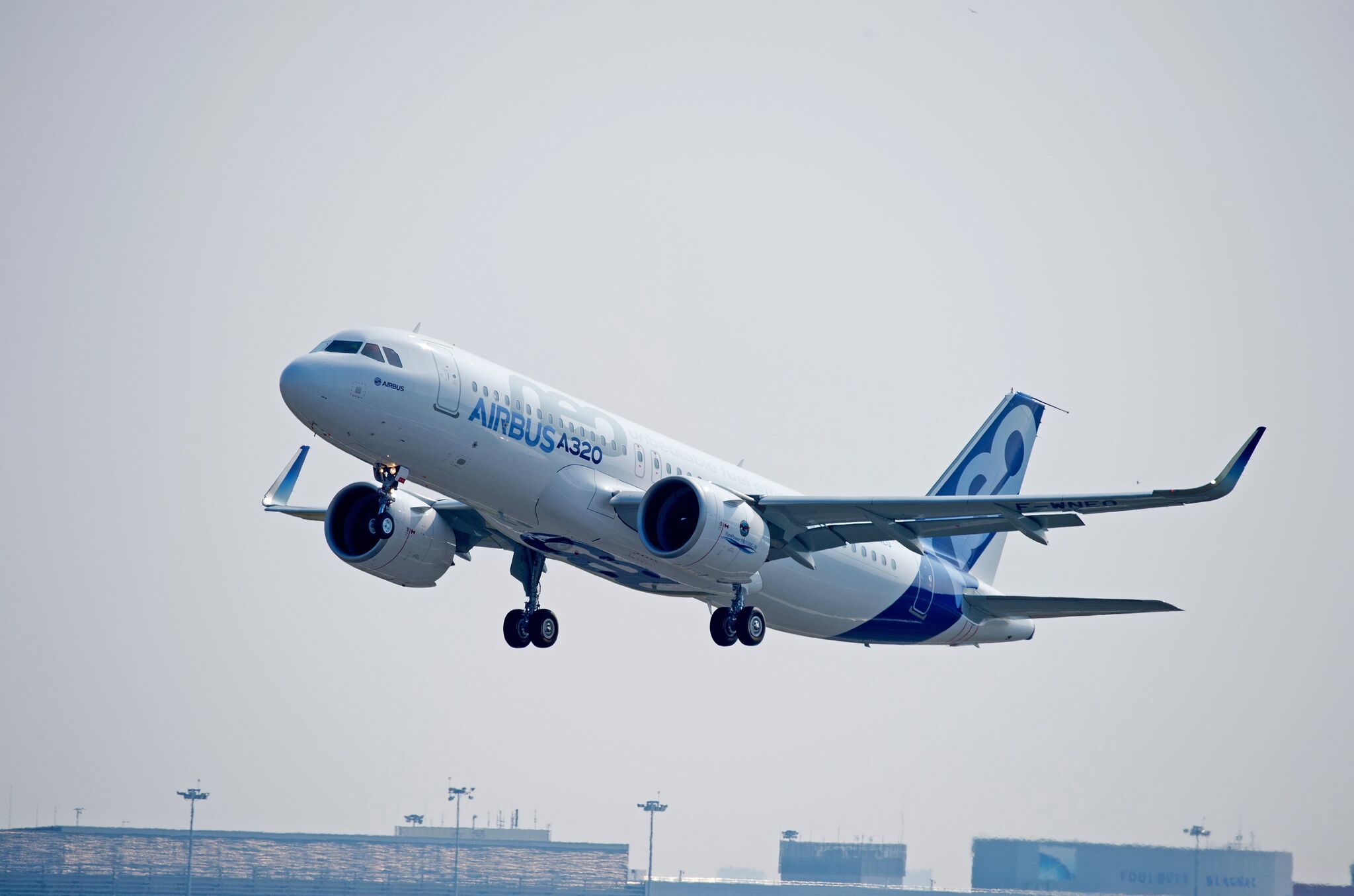
Proof of this comes from the U.S. Department of Commerce’s decision to slap an almost 300 per cent tariff on the C Series, after Boeing complained that the Canadian CS100/CS300 program had benefitted from unfair government subsidies.
Although Bombardier customer Delta Air Lines publicly reaffirmed its purchase of 75 C Series aircraft after the U.S. duty was announced–adding that it expected to receive the planes but did not expect to pay the tariffs–the levy put a chill on future C Series sales to American carriers.
Now that Airbus is in the picture, everything seems to have changed; primarily because Airbus already operates an A320 assembly factory in Mobile, Ala., to serve the U.S. market. This is where the company intends to set up a second C Series assembly line, in addition to the one already in operation at Bombardier’s facility in Mirabel, Que.
“Thanks to Airbus’ plan to assemble the C Series at its Mobile plant, the new deal simply destroys Boeing’s trade case,” declared Teal Group’s Aboulafia. “Boeing and the Commerce Department could try to persist with their complaint, but having the C Series built in Alabama makes this futile.”
According to Aboulafia, Boeing’s trade complaint against Bombardier was specifically couched to win support from the protectionist wing of the Republican Party. Unfortunately for Boeing, “The epicenter of that wing is in Alabama, which loves factory jobs [his emphasis], even from foreign companies,” he wrote in a Teal Group newsletter written after the Airbus/Bombardier deal was announced.
With the C Series now set to bring new jobs to the protectionist wing’s heartland, Aboulafia expects “that Commerce will rule that it has no authority on jetliners exported from Alabama to Georgia [where Delta Air Lines is based], and that will be that,” he said.
[At the time of writing on Oct. 18, Boeing wasn’t giving up. “The announced deal has no impact or effect on the pending proceedings at all,” said a tweet on Boeing’s Twitter account posted on Oct. 17, 2017, and attributed to J. Michael Luttig, Boeing’s executive vice-president and general counsel.]At the same time, Bombardier’s Mirabel assembly line is not under threat through the addition of the Alabama assembly facility, said Clay McConnell, head of communications for Airbus Americas, Inc.
“By bringing Airbus into the process, Bombardier will be able to sell to many more carriers in the U.S. and global markets,” McConnell said. “This means that the pie they are getting a slice of is much, much bigger than ever before; even when running two assembly lines instead of one!”
The message that Bombardier’s workforce is safe under the Airbus/Bombardier deal was hammered home in an open letter to the Canadian company’s employees from Airbus chief executive officer, Tom Enders.
Under the deal, “the headquarters of CSALP–along with most engineering services, research and development, as well as manufacturing and assembly activities–will remain in Quebec,” Enders promised. At the same time, “The teaming of Airbus and Bombardier will bring to the C Series what it urgently needs: production cost savings by leveraging Airbus’ operational and supply chain expertise and Airbus’ global reach and scale to accelerate the C Series’ commercial success.”
Creating an Airbus/Bombardier team will reinforce the C Series program and its industrial operations in Canada, the U.K. and the U.S., added Enders. “It will also give the world’s airlines even greater confidence in the C Series; once all approval processes are behind us, the full power of Airbus’ worldwide brand and marketing forces will be harnessed to sell the C Series.”
Enders’ reassurances notwithstanding, the federal government has promised to require protection for Bombardier’s Canadian workforce before approving the Airbus/Bombardier CSALP deal.
“Proposed investments of this kind require the government to consider whether they are in the national interest,” said minister of Innovation, Science and Economic Development, Navdeep Bains, in an official statement. “The Airbus deal, like all significant proposed investments in Canada by non-Canadians, is subject to the Investment Canada Act, an act which I oversee. In my review, I’ll be looking to see how this deal will benefit Canadians, support our aerospace sector and create good jobs.”
In saying this, Bains noted that Airbus already employs a Canadian workforce of 1,900 people across seven provinces, and it generates $1.2 billion of Canadian supply chain spending.
Benefits to Canadian Aerospace
Airbus’ open letter to Bombardier employees extended Enders’ good news to the entire Canadian aerospace industry.
“Canada is now set to become the fifth ‘home country’ in the Airbus family–the first outside of Europe,” he said. “Facilitated by the breakthrough free-trade agreement CETA between Canada and the EU, this marks an important milestone in Airbus’ commitment to invest in and expand its footprint across Canada for the long term, from coast to coast.”

This is no small deal, said Airbus’ McConnell. “Although Airbus operates in many countries worldwide, this marks the first time that we have established a ‘home country’ outside of the original four in Europe,” he said. “This speaks to how seriously we take establishing ourselves in Canada.”
Enders emphasized how important Airbus could be to the Canadian aerospace industry once the CSALP deal is finalized.
“Beyond the C Series, Canadian aerospace suppliers will have great access to the Airbus global supply chain–one worth $82 billion in contracts annually, extending across all of Airbus’ business lines and products, in both civil and military aviation,” he said in the open letter.
With promises like this, Aero Montreal president Suzanne Benoit is understandably happy about the Airbus/Bombardier CSALP deal. (Aero Montreal is a strategic think tank that brings together all the major decision-makers in Quebec’s aerospace sector.)
“I think it’s great news for our industry, because Airbus is a global player,” said Benoit. “This will bring more opportunities to our supply chain. This is very good news, in that sense.”
From Aero Montreal’s perspective, Airbus’ arrival comes at a time when the Canadian aerospace sector has already become diverse, cutting-edge and world-class. This means that Airbus will have access to a range of Canadian aerospace talent when it is time to launch new projects.
“This is all good news for us, to have such a key player come in to develop our aerospace industry here in Canada,” Benoit said.
What Lies Ahead
Now that the Airbus/Bombardier CSALP deal is out in the open, the clock is ticking. Until it is finalized, for instance, the C Series is still vulnerable to the 300 per cent U.S. import punitive tariff.
Certainly, the sharks are circling the C Series program. But then again, they were circling long before Airbus came to Bombardier’s rescue, simply because the revolutionary C Series family represented such a threat to the Airbus/Boeing aircraft duopoly.
At Bombardier itself, people are justifiably proud of what they’ve built, the storms they’ve weathered and how well they have played their hand.
“We have developed a product that is being recognized widely in the industry as being the most innovative in its class,” said Siphengphet.
“There is so much heart and soul in this aircraft program, and we believe that Airbus is the perfect partner to ensure that it has access to all key markets globally because their global scale, strong customer relationships and operational expertise are key ingredients for unleashing the full value of the C Series.”
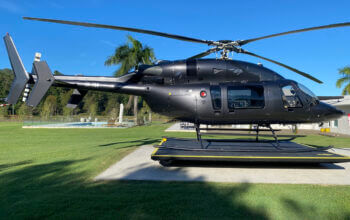



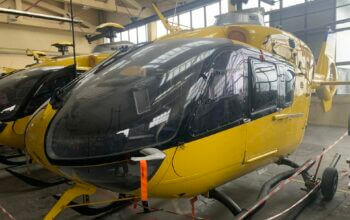
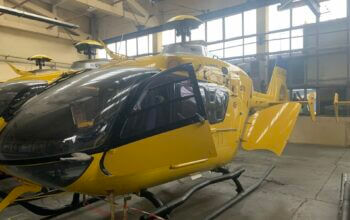
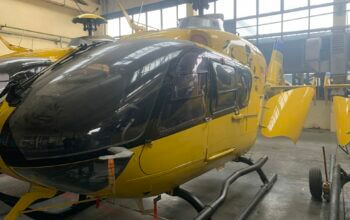
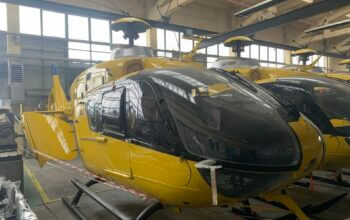

This is a Pyrrhic victory for Bombardier and Canada, they won the battle but at a great cost. Airbus clearly squeezed every possible advantage they could, it’s a pretty one-sided deal but Bombardier was over a barrel and I have doubt that this option was the only realistic one for them, so congratulations on living to fight another day. Unfortunately in the years to come few will remember that this “Airbus” airplane was a superb example of Canadian design and engineering. I’m glad a deal got done, but sad for Bombarier’s and Canada’s loss. And I now carry huge Boeing grudge that won’t go away quickly.
As a Boeing employee when governments crutch a competitor so they can sell product at a loss. That means in this case that the Canadian Government owns a piece of every C series sold. with Airbus taking control I doubt that the supply chain for it will stay in Canada. The Bombardier jobs may stay, but what about the jobs for the suppliers. Are 49.9% of the AP’s going to be built in Canada? Will Airbus start an assembly center in China also? they will have control of the Board of Directors. Once the camel gets its nose in the tent it won’t be long before you are sleeping outside and the camel gets the tent.
And congrats on what looks like a great airplane.
It’s better than allowing The United States protectionist government to bombard the tent with tariffs.